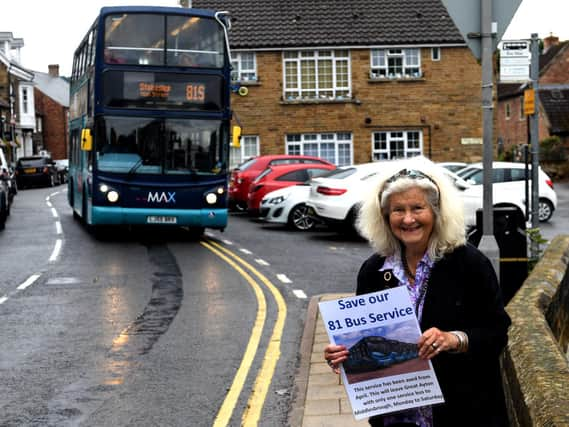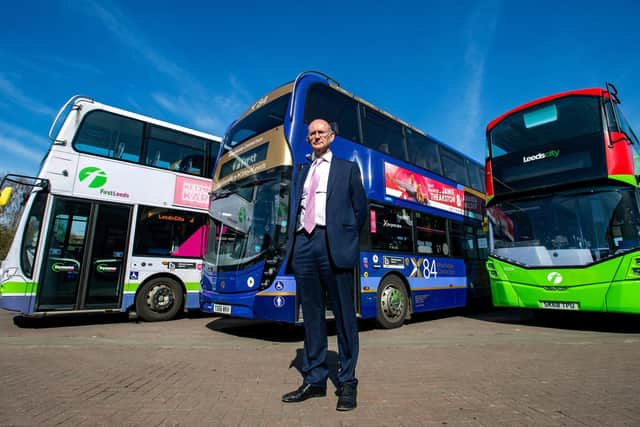Yorkshire bus crisis: Why vital services being lost could damage region's economic recovery


North Yorkshire leaders are making the case for a multi-million pound investment in bus services for England's largest county amid fears that loss of revenue could see services cease and operators go out of business.
With passenger numbers not expected to return to pre-pandemic levels for years, it is feared that "some commercial services that were only marginally profitable will become unprofitable and will therefore be terminated or curtailed in some way".
Read the full report here.


Advertisement
Hide AdAdvertisement
Hide AdIn their submission to the Government asking for £2.4bn in funding as part of a devolution deal, North Yorkshire's political leaders say the situation will likely be much worse in rural areas where many bus services only run once a day or week.
A special report by The Yorkshire Post today reveals widespread fears that without further investment from the Government to keep bus services going while they remain commercially unviable, many local services may be "unsustainable".
The Government has provided hundreds of millions of pounds of emergency funding to bus operators and last night extended its support scheme for another eight weeks at a cost of £218m.
Kim Groves, who chairs the West Yorkshire Combined authority's transport committee, said the current emergency funding was a "sticking plaster" and a longer-term solution was needed to stop many local bus services becoming unsustainable.
A special report by The Yorkshire Post reveals:
Advertisement
Hide AdAdvertisement
Hide Ad- Passenger numbers on bus services across Yorkshire are still nowhere near pre-pandemic levels, reaching around 40 per cent in West Yorkshire, 35 per cent in North Yorkshire and 30 per cent in York.
- There are fears that any further loss of bus services after years of decline will have a "hugely detrimental" impact on older people who have been isolated during lockdown.
- The lockdown has seen a dramatic shift in passenger behaviour, with one Yorkshire operator seeing its peak time now between 11am and 3pm rather than the traditional rush hour periods.
- Bus operators are putting their faith in technology, such as a new service that predicts when the busiest and quietest times to use particular routes, to entice passengers back
Advertisement
Hide AdAdvertisement
Hide Ad- Political leaders in North Yorkshire say the commercial bus network is not satisfying local demand and is “limiting the economic prosperity” of many communities in the county. They want £33m for a radical overhaul of local services.
Read the full report here.
Comment Guidelines
National World encourages reader discussion on our stories. User feedback, insights and back-and-forth exchanges add a rich layer of context to reporting. Please review our Community Guidelines before commenting.